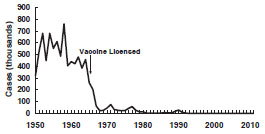This Sunday, “Meet the Press” spent the whole hour with Mitt Romney. The opening question was about his statement during his speech on religion and government. He was asked about his assertion that “Freedom requires Religion, and Religion requires Freedom.” I certainly agree with the latter sentiment. As is clearly demonstrated by the founding of this nation, freedom from persecution is a clear requirement in order for religious people to practice their beliefs. However, I (and many others) take serious issue with the former. Freedom requires nothing but a willingness to respect the rights of others. Freedom requires justice, the knowledge that acts of violation will be met with swift and appropriate punishment. Freedom requires most of all a willingness to work hard to keep it.
I’m afraid that Romney, like others, has again confused morality and religion. I’ve commented on this before [1]. It seems a common mistake. Many people of many religions cannot imagine a moral world without a God who either punishes or rewards. The idea seems to be that when no one is watching the candy store, everybody stuffs their faces or busts open the cash register. It’s one view. However, not every saint is a person of unshaken faith, and not every criminal is an atheist. How does one explain that, in a framework where religion is required for morality? You gotta be careful when mixing theology and politics, something the founders of this and other nations recognized very early.
Tim Russert went on to ask the litmus test question: would Romney refuse an appointment to a cabinet position if that person were an atheist. Romney was unequivocal: absolutely not. However, in nearly the same breath he said he believed that freedom requires religion, but that things are different on the individual level. What? Huh?
Bad politics and bad theology do seem to go hand in hand, even if the other way around isn’t so true.
[1] “Science without Ethics, Ethics without Religion, Religion without Science“



